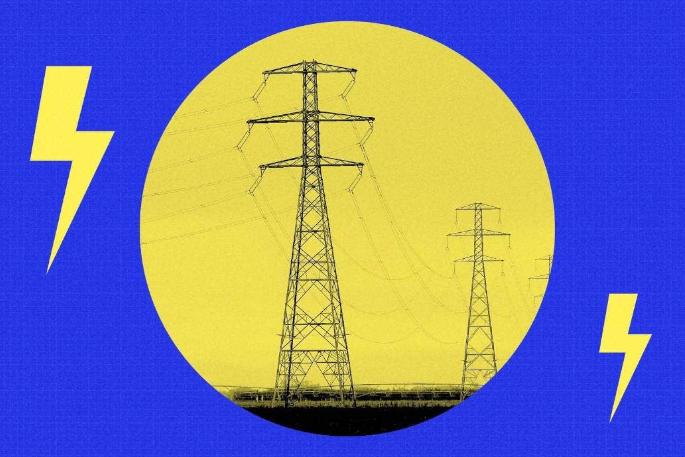Residents of one of New Zealand's fastest growing regions are paying 'anti-competitive” prices for power, adding pressure to people struggling with bills in the cost of living crisis, say poverty and consumer advocates.
Tauranga residents are paying 14.6 per cent more for electricity than average Kiwi consumers based on a typical household using 8000kWh/year, according to a recent quarterly survey of domestic electricity prices published by the government.
The scenario is being caused to a lack of competition as customers stick to the one provider that ensures they get a yearly lines trust rebate, giving no reason for that company to lower prices to compete, say advocates.
The figures do not surprise Kerry Lee Gibson, who was shocked to get bills upwards of $400 a month from Trustpower (now Mercury) when she moved into a newly built home in Tauranga with her partner and baby.
'We couldn't understand how our bills had skyrocketed. Trustpower says there was nothing they could do and that it must be our usage. So we did an experiment cutting out baths, heat, washing dishes by hand instead of the dishwasher, turning off towel rails, not using the dryer and washing clothes cold. That month of suffering only made $20 difference.”

Kerry Lee Gibson was shocked that her young family's power bills were higher than $600 a month. Photo: Supplied.
The family changed providers to Powershop, returned to 'a normal way of living with usage” and now bills average $170 a month.
Child Poverty Action Group spokesperson for the Western Bay of Plenty, David Riley, says the price difference was 'significant and disturbing” given Tauranga has fair lines charges, is relatively close to the national grid, has a large population and hydro-generation close to the city.
'Tauranga is the most expensive city in New Zealand for electricity energy, and we rank alongside Westport, Greymouth and Kerikeri as the most expensive regions in New Zealand. This situation has persisted for as long as the survey has been published since 2004.”
Energy retailers powering Tauranga charge more than in other cities, says Riley.
'I have recently recalculated the individual power retailer pricing for Tauranga, Auckland, Hamilton and Whakatane using the same criteria as MBIE use (8000 kWh not fixed term etc). All the main five retailers still charge more in Tauranga with the excess local charges between $113 and $466 for the standard 8000 kWh household (4.2 per cent to 17 per cent) not just Trustpower, which is at 17 per cent.”
Since 2013 the Western Bay has frequently been the most expensive region in New Zealand, he says.
'We should be paying less than the New Zealand average not more. We are for example paying 15.6 per cent more than Whakatāne residents.”
The Child Poverty Action Group believes the current system is especially unfair to new residents, young people and families starting out.
'Worryingly, children are over-represented in households experiencing energy hardship. Larger families and those living in poorer quality housing will be spending even more to stay warm and dry.”
Consumer NZ spokesperson and Powerswitch manager, Paul Fuge, agreed with the concerns raised, saying the TECT rebate deterred competition in the Bay of Plenty electricity market.
'We do have concerns with how TECT is distributing its annual dividend to consumers. Other electricity trusts distribute benefits to all electricity consumers within the areas they serve. TECT is unique in that its annual dividend only goes to Trustpower customers in Tauranga who have been with Trustpower since at least the 28th of January 2021."

'You can expect to be paying more than $200 per year in electricity costs just to run it and that is assuming the fridge is in good working order,” Paul Fuge says. Photo: Supplied.
'Existing beneficiaries of TECT who move to a different location or switch electricity provider give up their annual dividend. This raises competition issues as it discourages TECT beneficiaries from switching to providers that offer lower electricity prices. Making the dividend conditional on being a customer of a particular retailer is adversely impacting electricity retail competition in Tauranga. This is evidenced by the higher-than-average unit price of electricity, and low switching rates in Tauranga.”
Mercury general manager, Craig Neustroski, says the company was conscious of cost pressures households were facing.
'We have limited average total bill increases to between 3 per cent and 5 per cent this year and are absorbing our cost increases which are over and above this. We also encourage any of our customers who are struggling with their bills to contact us.”
The Commerce Commission had considered the impact of the TECT distribution most recently in 2021 as part of Mercury's clearance application to purchase Trustpower's retail business, he says.

Mercury general manager Craig Neustroski. Photo: Supplied.
”We aim to price to a consistent set of principles nationwide, and we do not factor in any local Trust distributions into our pricing as we have no influence over that distribution.”
There were multiple factors determining electricity pricing, which varied from location to location, he says. These included cost of generation, distribution, metering and service elements.



0 comments
Leave a Comment
You must be logged in to make a comment.